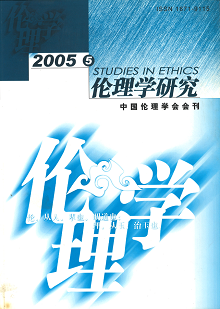|
|
On Ethical Meaning of Risk Society
WANG Guoyin
2005(5):
106-109.
It is a reality without doubting that we have entered the risk society. As a conception, risk embodied the end of nature and tradition. Risk is the modern approach to foresee and control the future consequences of human action, the various unintended consequences of radicalized modernization. It is an attempt, a cognitive map, to colonize the future. In risk society, risk will be forever, it has limited controllability. For human being, the risk is a greater challenge. Risk and responsibility are intrinsically connected. Risk society gives a new and more plentiful meaning to ethics . Strengthen ethical study of risk society , establish Risk Ethics , we will prevent the risks more better.
|



